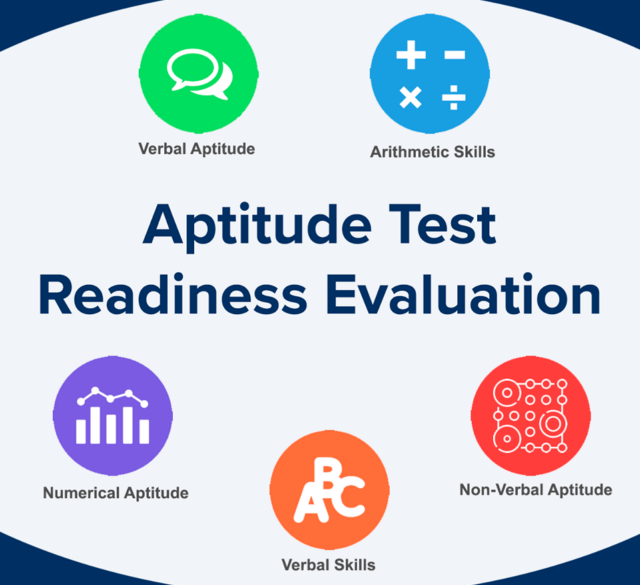
Recruitment is constant process in large organizations. The HR needs to keep on hunting people that can help the company to have desired role performed by him. One may not be able to carry out in depth inspection of the skills of a candidate and yet he needs to ensure that the candidate holds desired quality.
The corporate sector has its own portfolio to conduct interview processes by which they recruit candidates for the required posting or demand. In general, the process comprises the following stages. These stages are moderated according to the company’s requirements to select the right bunch of people to their firm. The build up takes this pattern:
Page Contents
Stages of interview processes:
Stage 1: aptitude assessment test

Aptitude assessment test is also called as the screening test by which the candidates are filtered primarily. This means that if a person has to get through the next stage, one must have the skill to crack the aptitude assessment test. This acts as a prerequisite for all the candidates who appear for the interview. This test grades the pupil according to their performance and speed level. This screening test helps to cut off candidates who are least deserving for the role.
Stage 2: group discussion
People who have good aptitude cut off marks enter this stage. Here, the candidates are clustered into groups and given a topic for discussion. This stage tests communication skill, behavioral aspect, body language, patience, firmness, rigidity, depth of knowledge in the given subject, and much more. To become a good leader or a competitive employee, one must possess excellent communication skills.
Over heading other candidates, rising the tone of voice for attention, interacting only to supportive or like-minded people will be noted and these are the pointers that make one candidate less deserving to enter the next stage of interview. A leader must be the one who sets standards and acts as a live example for their own principles. Most importantly, subject knowledge, a positive way of presentation, finding silver line amidst crisis, appreciable attitude and involving other candidates into the discussion are the key notes to get through this gateway.
Stage 3: one-on-one interview:

Candidates who triumph the first two stages get into this stage called one-on-one interview. Here, the candidates are expected to face a panel of company officials. The officials and recruiting team members scrutinize the tests and give on spot problems to evaluate one’s problem solving ability, strategy, swiftness, personality traits and much more. In case if the posting or role demands immense level of patience, the candidates will be put under stress buster tests, tolerance tests and a bunch of exploratory tests to categorize a candidate according to their response.
Importance of aptitude assessment tests:

Do you wonder why out of a whole population, hardly a handpicked from the crowd enters into stage 2 of the interview process? This is lack of awareness or ability to get through stage 1, which is the aptitude test. Aptitude assessment tests are set such a way that the candidates can be separated easily from a big population.
Pattern or design of aptitude assessment tests:
The pattern or design of aptitude assessment tests are of three levels of question formation. They are easy, intermediate and hard. A candidate must answer easy and intermediate level questions and score cent percent. The toughest among these are the level hard questions which bring out the real ability or skill test of the candidate. Recruiters set the grade for clearing the process as this is the very first step of entry. Moreover, this level has to separate the most deserving from the least among the common crowd. You can check such tests on this website.
Aptitude assessment tests and their advantages:

Know why aptitude assessment tests are of vital aspects when you appear for an interview. Following are the advantages or pros of these test models:
- Exclusive pattern: aptitude test pattern comprises logical reasoning, numerical analysis, verbal reasoning, continuity of patterns and much more. These tests ensure that a candidate is capable of using all their skills at once under allotted time. The time restriction allows the recruitment team to filter candidates who lack speed or responsive thinking ability among the deserving clan.
- Time saving and flexible pattern: as these tests can be modelled online and offline without bias, it saves more amount of time and comes with flexibility. Moreover, the tests take not more than half an hour to one hour, so they conduct these screening tests in batches for mass walk in during bulk recruitments.
- Cuts off bias: the tests are more reliable as they are bias free. Equal time duration, importance and attention are given to every candidate who takes up the interview. Hence these generic tests are considered by top companies for their first round of screening.
- Modelling of the tests: the model and pattern of assessment tests are set according to the needs. Human resource department and personal psychologists take this responsibility. After considering aspects that can bring out the real ability and IQ level, they set the questions. When subject matter experts step in, the process becomes more reliable and trustworthy.
- Saving vital resources: these tests enable one to save the most important resources for efficient work patterns. They are the time, money and labor. Aptitude tests channelize the pattern of interview into the right direction so the recruiters are in no way misled by other influencing factors.
Key skills exposed by aptitude assessment tests:

The tests bring out various factors that enhance a candidate to fit into the job requirement. Mental ability, swiftness, knowledge, verbal reasoning, logical competency, pressure management and many vital skills are must to get into a corporate or challenging role that demands growth in performance everyday. The method is unadulterated, hence companies rely on these kind of tests more for stage 1 screening processes. With right training and practice, one can crack these tests to prove their abilities. For any interview training, one must definitely take these aptitude tests into account to exhibit their talents and core competencies to this world.































